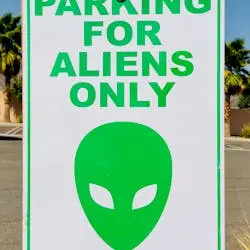
I often hear the debate between those who choose to eat a vegetarian diet and those who choose to eat meat. Both sides have valid arguments, and it can be difficult to know which is the right choice. So, let’s take a look at the pros and cons of both vegetarianism and meat-eating.
The Pros of Vegetarianism: A vegetarian diet is often rich in fiber, vitamins, and antioxidants, which can lead to a healthier and more balanced diet. It can also be more environmentally friendly, as producing vegetables requires fewer resources than producing meat. Additionally, some people find that a vegetarian diet helps them feel more energetic and improve their overall well-being.
The Cons of Vegetarianism: Vegetarianism can be more expensive, as fresh produce can be more expensive than meat. It can also be more challenging to get all the necessary nutrients, such as protein, that are found in meat. And for some people, the thought of giving up meat can be overwhelming and unappealing.
The Pros of Meat-Eating: Meat is a rich source of protein and essential nutrients, making it an important part of a healthy diet. It can also be more affordable and convenient, as meat is widely available and easy to cook. And for many people, meat is an essential part of their cultural and culinary traditions.
The Cons of Meat-Eating: Meat production is a significant contributor to greenhouse gas emissions and deforestation, and it can also be harmful to the environment. Additionally, eating too much meat can lead to health problems, such as high cholesterol and heart disease.
In conclusion, the choice between vegetarianism and meat-eating is a personal one. Both have their own unique pros and cons, and the right choice will depend on your individual needs, beliefs, and preferences. So, whether you choose to go meat-free or enjoy a juicy steak, make sure to do what is best for you and your health.
Simplified Story:
Summary:
People have different opinions on whether to eat a vegetarian diet or a meat-based diet. Both have their own benefits and drawbacks. Vegetarianism can be good for your health, as it often contains plenty of vitamins and fiber. It is also better for the environment, as it takes fewer resources to grow vegetables than meat. However, it can be more expensive and harder to get enough protein. Meat-eating provides a lot of protein and essential nutrients. It is also more affordable and easier to find. But, it can harm the environment and lead to health problems if you eat too much. In the end, the decision between vegetarianism and meat-eating is up to you and what works best for your health and beliefs.
Questions:
Do you think a vegetarian diet is better for your health than a meat-based diet?
Which do you think is better for the environment, a vegetarian diet or a meat-based diet?
What are the benefits of a vegetarian diet?
What are the drawbacks of a meat-based diet?
What are the benefits of a meat-based diet?
Vocabulary:
Vegetarianism - a diet that consists of only plants and no meat
Meat-based - a diet that includes meat as a primary source of nutrition
Benefits - advantages or positive aspects
Drawbacks - disadvantages or negative aspects
Personal - relating to a particular individual
Opinion - a view or judgement about something
Health - the state of being physically and mentally fit
Beliefs - a set of convictions or acceptance of certain principles




